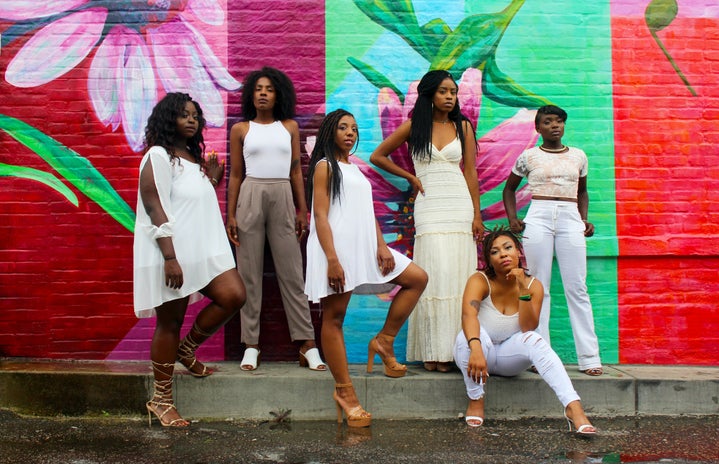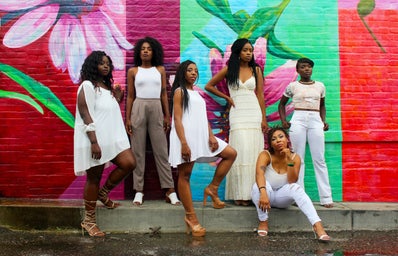“Ain’t I a woman?,” Soujourner Truth said at the Women’s Rights Convention in 1851. She posed this question because women were fighting for rights, yet they overlooked the rights of Black women due to racism. The conversation of overlooking Black women during the feminist discussion was continued in 1896 with the National Association of Colored Women founded by Ida B. Wells, Frances Harper, Harriet Tubman, and Mary Church Terrell. Black feminism is based on many principles including:
1) Black women’s experiences with racism, sexism, and classism are intersectional and cannot be separated.
2) The needs and views of Black women are distinct from those of Black men and white women.
The organization was the first to acknowledge that race and gender can’t be separated for Black women. They held the slogan “lifting as we climb”, emphasizing the fact that their identity as a double minority puts them at the bottom, and if they were free from oppression then everyone would be free. They wanted to show that by elevating their own status and fighting for their rights, then they could do the same for their entire community.
The movement includes every type of Black woman despite their age, class, or sexuality. For example, in Black feminist, Toni Cade Bambara’s first novel, The Black Women: The Anthology, Black women highlight the gender and race intersectional issues that weren’t addressed in the Civil Rights Movement and Women’s Movement. The Combahee River Collective, a Black feminist lesbian organization, became active with the same purpose of advocating for Black women, while exclusively focusing on queer women.
Black women used literature and academia to empower Black women with critical ways of thinking that show how racism and sexism work together to create social issues and inequalities for Black women. In addition to Bambara, Toni Morrison, Octavia Butler, Audre Lorde, and Alice Walker all wrote essays, prose, and fiction novels noting the struggles that Black women faced as race and gender worked against them.
As the movement has become more mainstream, Black womens’ voices have become louder and reach wider audiences. They have begun to make room for themselves as they hold high positions in publishing, entertainment, and politics. The focus remains to fight for the rights of Black women, such as discrepancies in healthcare, arrest rates, and underrepresentation within the government. It continues to resist any other movement that may require them to compromise with a type of feminism that doesn’t acknowledge the differences in womanhood.
Social media and popular culture have given women a platform to share their stories and raise awareness in new ways. For example, Mikki Kendall uses storytelling through a number of essays to highlight important women throughout the history of Black feminism in her award-winning novel Hood Feminism. Using her music to make strides for Black women, specifically curvier ones, Lizzo encourages girls to be the first in any area where things haven’t been accomplished. Issa Rae puts a spotlight on quirky Black girls whose stories are rarely told in her show Insecure.
While being an instrumental force in spreading Black feminism, social media has also continued to push the dated “strong Black woman” narrative that identifies us as resilient creatures who can persevere through anything, yet it fails to provide us with the support that we need. This ties back to the idea that has been discussed about Black women coming together and helping each other meet their needs. With this, many women have emphasized the importance of mental health and awareness in their community. With this same idea, women are emphasizing the life of luxury and wealth that is rarely shown by Black women. Platforms like Black Women in Luxury on Instagram and Spoiled Black Queens on Tumblr, as well as influencers like Jackie Aina, emphasize that Black women don’t have to live stressful lives and are capable of leveling up and creating a life their ideal life.
As the movement continues, we can’t deny or belittle the contributions that Black women have made to different cultures. As you celebrate women and their accomplishments during this month, don’t forget to acknowledge the differences that each woman may face.


